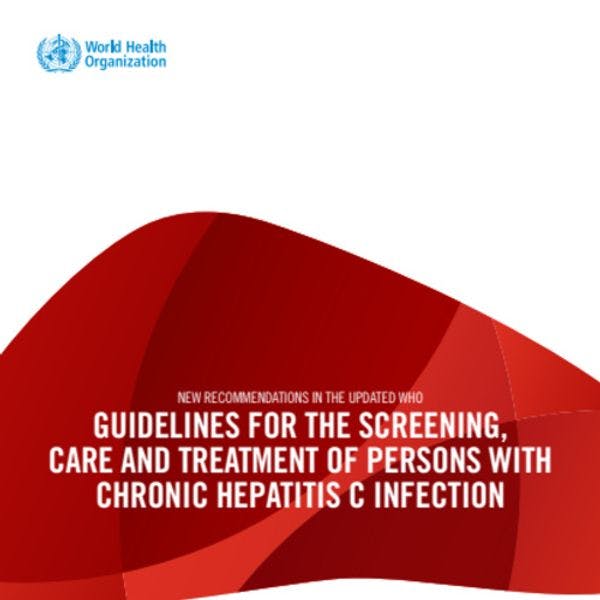Actualisation des directives de l'OMS: Nouvelles recommendations sur le dépistage, les soins et le traitement des les personnes atteintes par l'hépatite C chronique
Les objectifs de ces recommendations actualisées sont de fournir des conseils fondés sur des preuves pour le traitement des personnes touchées par l'hepatite C, en utilisant lorsqu'il est possible toutes les combinaisons-orales de ces nouveaux médicaments, aussi appelés "direct-acting antivirals" (DAAs). Pour en savoir plus, en anglais, veuillez lire les informations ci-dessous.
Abonnez-vous à l'Alerte mensuelle de l'IDPC pour recevoir des informations relatives à la politique des drogues.
Globally, the morbidity and mortality attributable to hepatitis C virus (HCV) infection continues to increase. Approximately 700 000 persons die each year from HCV-related complications, which include cirrhosis and hepatocellular carcinoma (HCC). HCV infection can be cured by antiviral treatment; however, due to the asymptomatic nature of the disease, most infected persons are unaware of their infection and, for those who are diagnosed, access to treatment remains low in many settings.
The World Health Organization (WHO) issued the first Guidelines for the screening, care and treatment of persons with hepatitis C infection in 2014. Since then, several new medicines for the treatment of HCV infection have been introduced. Of these, daclatasvir, ledipasvir, and a combination of ombitasvir, paritaprevir and dasabuvir were added to the WHO Model List of Essential Medicines in 2015. These medicines are transforming the treatment of HCV, enabling the use of regimens that can be administered orally, are shorter in duration (as short as eight weeks), result in cure rates higher than 90%, and are associated with fewer serious adverse events (SAEs) than the previous interferon-containing regimens.
The objectives of these updated WHO Guidelines are to provide evidence-based recommendations for the treatment of persons with hepatitis C infection using, where possible, all-oral combinations of these new medicines, also called direct-acting antivirals (DAAs). The Guidelines also provide recommendations on the preferred regimens based on a patient’s HCV genotype and clinical history, and assess the appropriateness of continued use of the existing medicines. The key audience for these guidelines are policy-makers in low- and middle-income countries who formulate country-specific treatment guidelines, and who plan infectious disease treatment programmes and services, in addition to those people responsible for delivering treatment. The Guidelines are appropriate for all countries, including high-income countries.
Click here to read the full article.
Keep up-to-date with drug policy developments by subscribing to the IDPC Monthly Alert.
